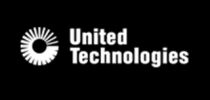MdBio Foundation Marks 16 School Years of Mobile STEM Education
The MdBio Foundation, a non-profit that provides STEM education and workforce development to underserved communities, is celebrating its 16th school year of delivering innovative, hands-on science, technology, engineering and math (STEM) education to students aboard mobile laboratories. During the 2017-18 school year, the foundation will debut its new Mobile eXploration Lab (MXLab), the largest mobile laboratory of its kind in the U.S., at high schools across the state of Maryland, and begin offering a new mobile program for middle schools in Washington, D.C., through a $1.36 million grant from the Verizon Foundation.
“The Washington, D.C., region is one of the nation’s hubs for technological innovation and research, offering opportunities for lucrative careers,” said Brian Gaines, CEO of the MdBio Foundation. “Through our mobile lab program, we are inspiring the next generation of innovators to pursue their interest in STEM, building our region’s STEM pipeline with qualified workers, and building a solid foundation for their futures.”
MXLab Expands High School Student Access to Real-World STEM Applications
MdBio launched its flagship mobile laboratory program with the MdBioLab, a custom-built wet lab housed in a tractor trailer. To date, the program has served more than 150,000 Maryland students at more than 500 school visits in every school district across the state.
Seeking to give students greater access to new technology and experience with practical, real-world applications in use by today’s scientific and tech communities, the foundation developed the MXLab, which is three times larger than the MdBioLab. The MXLab, which was unveiled in January 2017, is 53-feet long, featuring double-expandable slide-out sides and additional outside space to serve larger audiences. With the ability to comfortably accommodate more than 40 students inside, MXLab enables instructors to increase class size by 20 percent.
MdBio estimates that the MXLab will serve 10,000 students at 35 high schools each year. The lab’s proven curriculum includes biology, chemistry and environmental science courses, as well new activities, such as data set modeling, integrated computing, cyber security and game-based learning. The foundation is currently developing two new activities to promote STEM careers in technology, collaborating with local companies to develop content and pique interest in high-demand skills. The MXLab also will be used at community events to promote the STEM industry and offer professional development for educators.
The MXLab kicked off the school year at Annapolis High School earlier this month. All told, the lab will visit schools in 11 Maryland counties and Baltimore City, including:
Allegany County
Fort Hill H.S.
Anne Arundel County
Annapolis
H.S.
Baltimore City
Augusta Fells
Savage H.S.
Baltimore City College
Friendship Academy
Green
Street Academy
Mergenthaler Vocational Technical School
Patterson
H.S.
Reach Partnership
Renaissance Academy
St. Frances
Academy
SEED School
Vivian T. Thomas H.S.
Western H.S.
Baltimore County
Crossroads
Center
Woodlawn H.S.
Charles County
North Point H.S.
Westlake
H.S.
Cecil County
Elkton H.S.
Frederick County
Frederick H.S.
Middletown
H.S.
Tuscarora H.S.
Howard County
Centennial H.S.
Montgomery County
Gaithersburg
H.S.
Watkins Mill H.S.
Prince George’s County
Bladensburg
H.S.
Duval H.S.
Elizabeth Seton H.S.
High Point H.S.
Largo
H.S.
Parkdale H.S.
St. Mary’s County
Great Mills
H.S.
Worcester County
Pocomoke H.S.
New Middle School Lab Supported by Verizon Foundation Grant
New this year, the MdBio Foundation will operate a mobile laboratory program for D.C. middle schools through a $1.36 million grant awarded by the Verizon Foundation. The explorer lab is a shared immersive learning experience that combines movie-quality video, special effects and hands-on educational gaming. Onboard a customized motor coach, students will experience a futuristic research lab that transports them to destinations they’ve never experienced, including outer space.
For the 2017-18 school year, the explorer lab Mars Discovery Program will transport students to the red planet for engineering challenges. Onboard the lab, student explorers will experience an interactive tour of the solar system, ending with a landing on Mars. Following the landing, each student will use a tablet to design his or her own Mars rover.
MdBio was chosen to operate the lab as a best-in-class nonprofit partner of the Verizon Foundation, as a result of its leadership in the mobile laboratory space.
About MdBio Foundation
MdBio Foundation is a non-profit organization that provides innovative, effective and experiential science, technology, engineering and mathematics (STEM) education and workforce development opportunities to underserved communities. MdBio’s interdisciplinary approach uses STEM to explore a real-world, problem-centric curriculum that bridges school, community, health and business. The foundation’s flagship program is a mobile laboratory for high schools that has provided quality educational experiences to more than 150,000 students throughout the state of Maryland since its launch in 2003. MdBio also operates other celebrated STEM education programs, such as the Young Science Explorers Program for middle school students, the Maryland BioGENEius Award, and ATLAS: Advancing Tomorrow’s Leaders in STEM college and career symposium. Visit www.mdbiofoundation.org or follow on social media @MdBioFoundation.
View source version on businesswire.com: http://www.businesswire.com/news/home/20170925005748/en/



